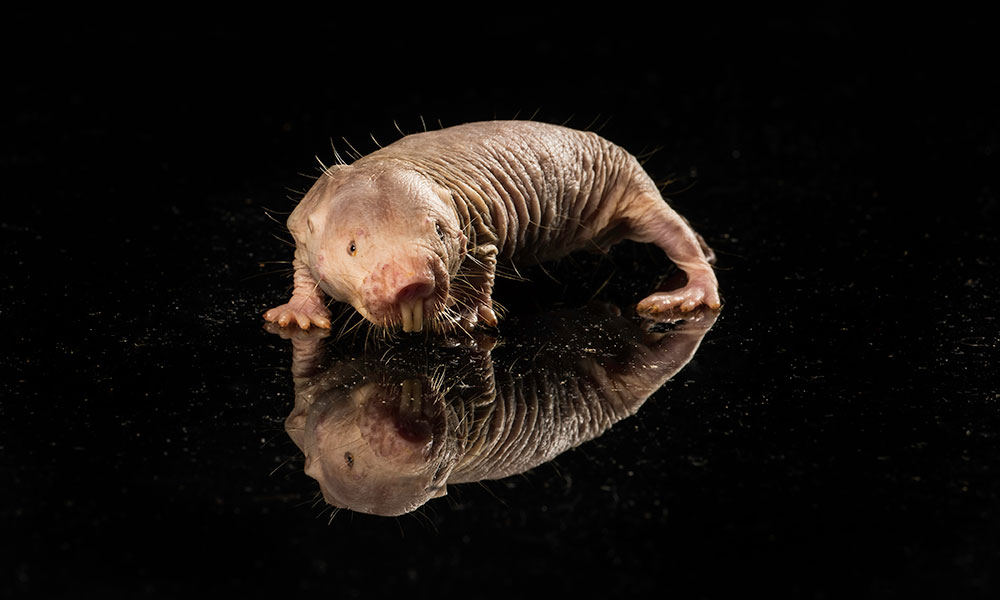
Why do naked mole rats live long, cancer-free lives?
Rochester biologists were surprised to see that despite its remarkable longevity, the naked mole rat still has cells that undergo senescence, like the cells in much shorter-lived mice.
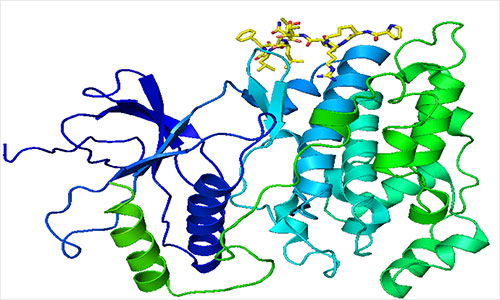
Protein found that initiates DNA repair
Researchers who specialize in the study of aging have identified a protein that may serve as a first responder, activating a “longevity gene” known as sirtuin 6 and setting in motion a cascade of molecular first responders to repair damaged DNA.
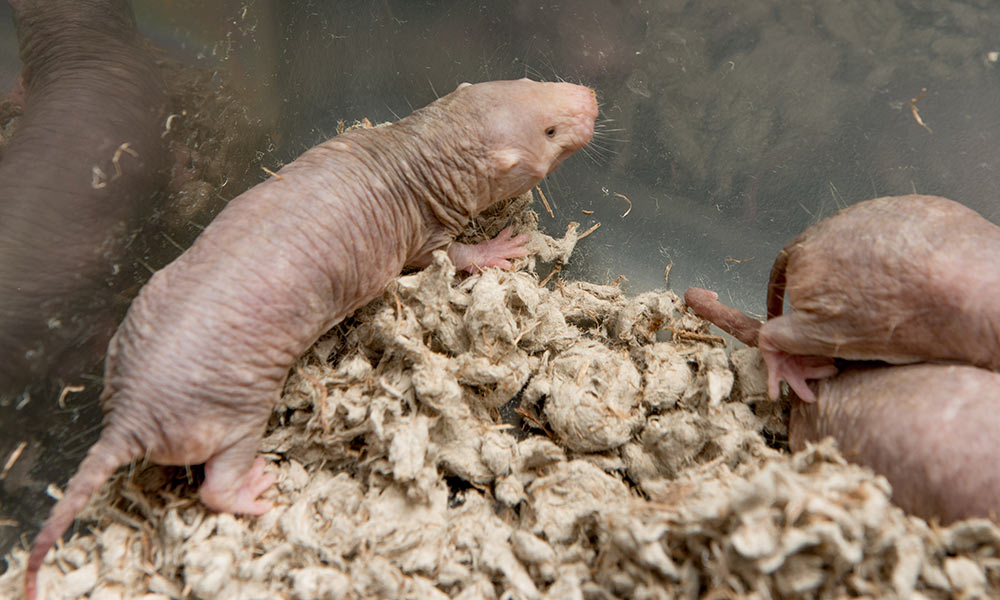
An extra protein gives naked mole rats more power to stop cancer
Naked mole rats are small, hairless, subterranean rodents that have never been known to get cancer despite having a 30-year lifespan. A new protein discovered by biologist Vera Gorbunova may help explain why.
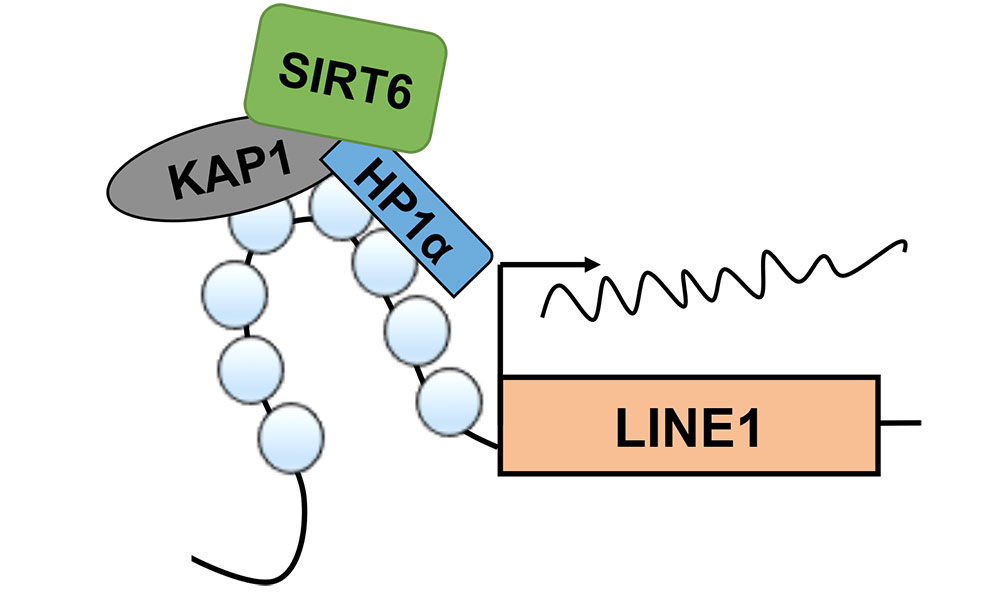
Parasitic DNA stops “jumping” when protein takes charge
Biology researchers Vera Gorbunova and Andrei Seluanov report that the “jumping genes” in mice become active as the mice age when a multi-function protein stops keeping them in check in order to take on another role. A protein called Sirt6 is needed to keep the jumping genes—technically known as retrotransposons—inactive.
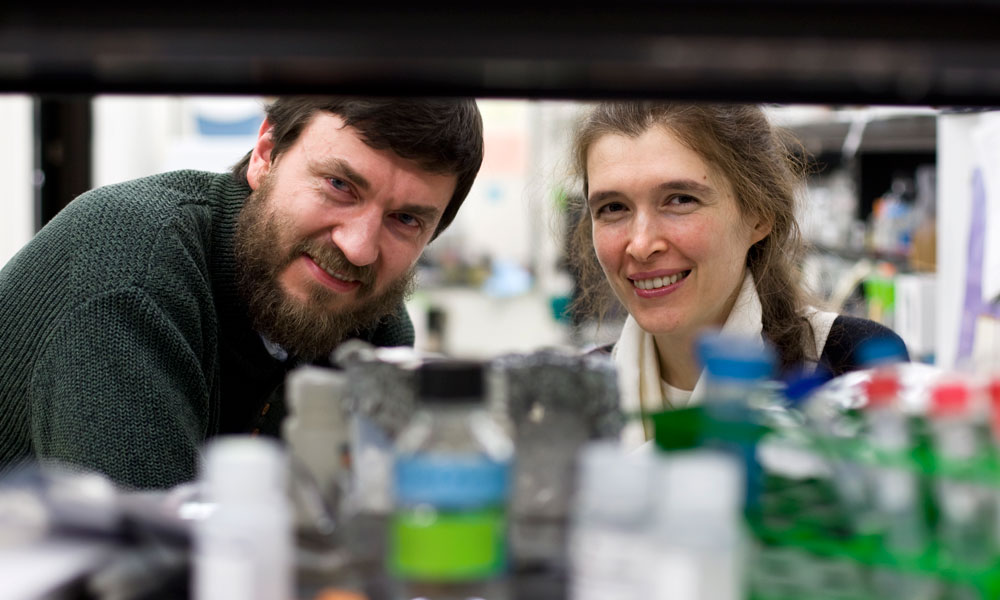
Less effective DNA repair process takes over as mice age, biologists find
Biologists Vera Gorbunova and Andei Seluanov have discovered one reason for the the increase in DNA damage as we age: the primary repair process begins to fail and is replaced by one that is less accurate.

Biologist Vera Gorbunova to lead 5-year project on longevity
A $9.5 million grant from the National Institute on Aging will support research into the factors responsible for longevity in various species of long-lived rodents, with the goal of developing treatments to improve the aging process in people.
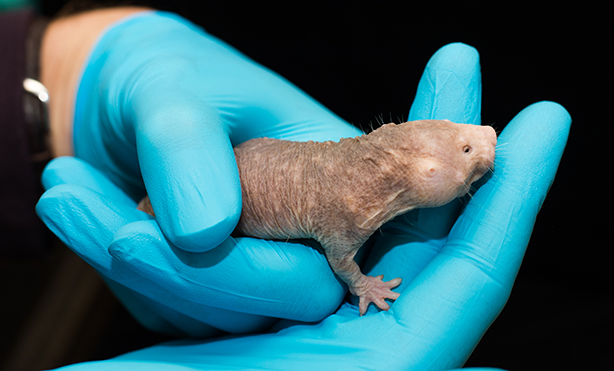
Vertebrate of the Year!
“Here at the University, the naked mole rat seems like it has been the Vertebrate of the Year for several years,” said President Seligman.
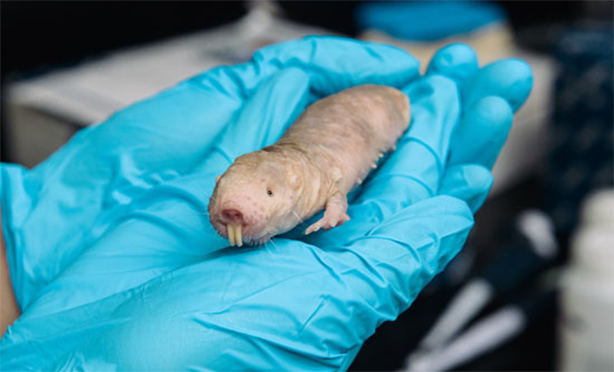
Naked Mole Rats Cancer-resistant Chemical ID’d
The biologists’ focus on high molecular weight hyaluronan (HMW-HA) began after they noticed that a gooey substance in the naked mole rat culture was clogging the vacuum pumps and tubing.
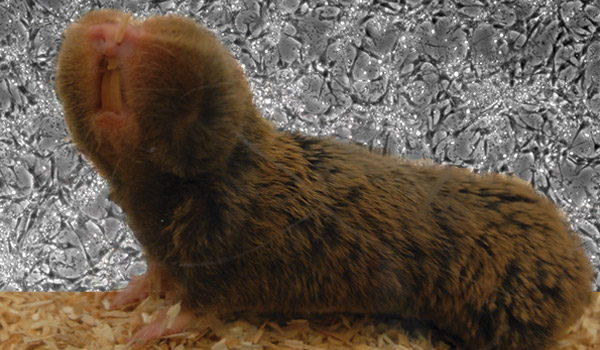
How Do Blind Mole Rats Ward Off Cancer?
Blind mole rats and naked mole rats—both subterranean rodents with long life spans—are the only mammals never known to develop cancer. Rochester biologists have now determined that the mechanism for fighting off cancer differs between the two.
